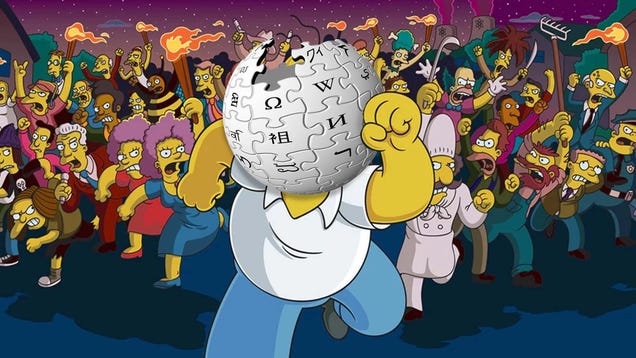Wikipedia Won't Add AI-Generated Slop After Editors Yelled At Them
Wikipedia Scraps AI Summary Plans Due to Editor Revolt

The Wikimedia Foundation, the non-profit organization behind the world's largest online encyclopedia, Wikipedia, has reversed its decision to incorporate AI-generated summaries into its articles. This U-turn follows a strong and overwhelmingly negative response from Wikipedia's vast community of volunteer editors.
Why the Backlash?
Wikipedia relies heavily on the contributions of its volunteer editors. These dedicated individuals meticulously research, write, and edit articles, ensuring accuracy and neutrality. The introduction of AI-generated summaries raised serious concerns among these editors, prompting significant pushback.
Several key issues fueled the opposition:
- Accuracy Concerns: AI models are known to sometimes generate inaccurate or misleading information. Editors worried about the potential for AI-generated summaries to spread misinformation, undermining Wikipedia's core value of reliability.
- Bias and Fairness Issues: AI models are trained on vast datasets, which can reflect existing societal biases. Editors feared that AI-generated summaries might perpetuate or even amplify these biases, leading to unfair or prejudiced representations of topics.
- Lack of Transparency and Verifiability: The process by which AI generates summaries often lacks transparency. Editors were concerned about the difficulty of verifying the information presented in AI-generated summaries and tracing its sources, which is crucial for maintaining Wikipedia's standards of verifiability.
- Undermining Human Effort: Many editors viewed the introduction of AI-generated summaries as a potential devaluation of their contributions. The time and effort they dedicate to crafting well-researched and nuanced articles would be overshadowed by automatically generated, potentially less accurate, summaries.
- Copyright and Licensing Issues: The use of AI-generated content raises complex legal questions surrounding copyright and licensing. Editors were concerned about the potential for unintentional copyright infringement or the use of content with incompatible licenses.
- Control and Oversight: Editors expressed concerns about the lack of control and oversight over the AI system. They worried about the potential for errors and biases to go undetected and uncorrected.
The Wikimedia Foundation's Response
The Wikimedia Foundation acknowledged the significant concerns raised by its editors and ultimately decided to halt the implementation of AI-generated summaries. This demonstrates the Foundation's commitment to engaging its community and prioritizing the quality and reliability of Wikipedia's content.
The decision underscores the importance of human oversight in the creation and maintenance of reliable information sources. While AI has the potential to assist in various tasks, the complexities and potential risks associated with its use in generating summaries for a project like Wikipedia, which values accuracy and neutrality above all, clearly outweigh the perceived benefits at this time.
The Future of AI in Wikipedia
While the immediate plans for AI-generated summaries have been shelved, the Wikimedia Foundation hasn't completely ruled out the use of AI in the future. However, any future exploration of AI tools will likely involve greater consultation with and input from the community of volunteer editors.
The Foundation recognizes the potential benefits of AI in supporting various aspects of Wikipedia's operation, such as identifying potential vandalism, improving search functionality, or translating articles. However, the experience with AI-generated summaries highlights the critical need for careful consideration of ethical implications, accuracy concerns, and the vital role of human editors in maintaining Wikipedia's integrity.
Lessons Learned
The Wikipedia AI summary debacle serves as a cautionary tale for the broader application of AI. It emphasizes the importance of:
- Community Engagement: Involving the relevant stakeholders, in this case, the volunteer editors, in the development and implementation of AI systems is crucial for ensuring acceptance and addressing potential concerns.
- Transparency and Accountability: Clear processes for oversight, error detection, and correction are essential when using AI systems for information generation.
- Prioritizing Accuracy and Reliability: The focus should always remain on maintaining the accuracy, reliability, and neutrality of the information presented.
- Addressing Bias: Mitigating bias in AI models and training datasets is crucial to avoid perpetuating existing societal inequities.
The episode highlights the inherent limitations of current AI technology and the continued importance of human expertise, particularly in areas that require critical thinking, nuanced understanding, and ethical considerations.
In conclusion, the rejection of AI-generated summaries on Wikipedia underscores the crucial role of human oversight in maintaining the accuracy and integrity of online information. While AI offers potential benefits, careful consideration of ethical, practical, and community-related aspects is paramount before widespread implementation.
For more information on this topic, you can read more at: Kotaku and Kotaku.
from Kotaku
-via DynaSage

